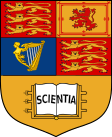Related Research Articles

Postgraduate education, graduate education, or graduate school consists of academic or professional degrees, certificates, diplomas, or other qualifications usually pursued by post-secondary students who have earned an undergraduate (bachelor's) degree.
An academic degree is a qualification awarded to a student upon successful completion of a course of study in higher education, usually at a college or university. These institutions often offer degrees at various levels, usually divided into undergraduate and postgraduate degrees. The most common undergraduate degree is the bachelor's degree, although some educational systems offer lower-level undergraduate degrees such as associate and foundation degrees. Common postgraduate degrees include master's degrees and doctorates.
A bachelor's degree or baccalaureate is an undergraduate degree awarded by colleges and universities upon completion of a course of study lasting three to six years. The two most common bachelor's degrees are the Bachelor of Arts (BA) and the Bachelor of Science. In some institutions and educational systems, certain bachelor's degrees can only be taken as graduate or postgraduate educations after a first degree has been completed, although more commonly the successful completion of a bachelor's degree is a prerequisite for further courses such as a master's or a doctorate.

Undergraduate education is education conducted after secondary education and before postgraduate education, usually in a college or university. It typically includes all postsecondary programs up to the level of a bachelor's degree. For example, in the United States, a student pursuing an associate or bachelor's degree is known as an undergraduate student while a student pursuing a master's or doctoral degree is a graduate student. Upon completion of courses and other requirements of an undergraduate program, the student would earn the corresponding degree. In some other educational systems, undergraduate education is postsecondary education up to and including the level of a master's degree; this is the case for some science courses in Britain and some medicine courses in Europe.
A Bachelor of Education is an undergraduate professional degree which prepares students for work as a teacher in schools. In some countries such as Tanzania and Kenya, additional tasks like field work and research are required in order for the student to be fully qualified to teach. It may also be accompanied with or followed by tests for licenses or certifications required for teachers in some areas.
Education in England is overseen by the Department for Education. Local government authorities are responsible for implementing policy for public education and state-funded schools at a local level. State-funded schools may be selective grammar schools or non-selective comprehensive schools. All state schools are subject to assessment and inspection by the government department Ofsted. England also has private schools and home education; legally, parents may choose to educate their children by any suitable means.
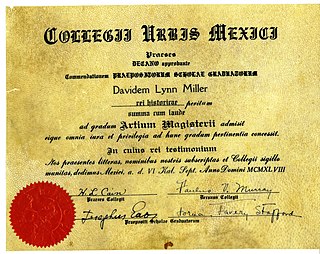
A diploma is a document awarded by an educational institution testifying the recipient has graduated by successfully completing their courses of studies. Historically, it has also referred to a charter or official document of diplomacy.
Doctor of Medicine is a medical degree, the meaning of which varies between different jurisdictions. In the United States, and some other countries, the M.D. denotes a professional degree. This generally arose because many in 18th-century medical professions trained in Scotland, which used the M.D. degree nomenclature. In England, however, Bachelor of Medicine, Bachelor of Surgery (M.B.B.S.) was used and eventually in the 19th century became the standard in Scotland too. Thus, in the United Kingdom, Ireland and other countries, the M.D. is a research doctorate, honorary doctorate or applied clinical degree restricted to those who already hold a professional degree (Bachelor's/Master's/Doctoral) in medicine. In those countries, the equivalent professional degree to the North American, and some others' usage of M.D. is still typically titled Bachelor of Medicine, Bachelor of Surgery.
A postgraduate diploma is a postgraduate qualification awarded after a university degree, which supplements the original degree and awards them with a graduate diploma. Countries that award postgraduate diplomas include but are not limited to Bangladesh, Barbados, Belgium, Brazil, Canada, Chile, Colombia, Germany, Hong Kong, Jamaica, Spain, Kenya, South Africa, Sudan, India, Israel, Ireland, the Netherlands, New Zealand, Nigeria, Republic of Panama the Philippines, Portugal, Russia, Pakistan, Poland, Saudi Arabia, Singapore, Sweden, the United Kingdom, Sri Lanka, Trinidad and Tobago and Zimbabwe. Level of education and recognition differ per issuing country.
A Bachelor of Medicine, Bachelor of Surgery, MBBS is a medical degree granted by medical schools or universities in countries that adhere to the United Kingdom's higher education tradition. Despite the historical distinction in nomenclature, these degrees are typically combined and conferred together. This degree is usually awarded as an undergraduate degree, but it can also be awarded at graduate-level medical institutions. The typical duration for completion is five to six years.
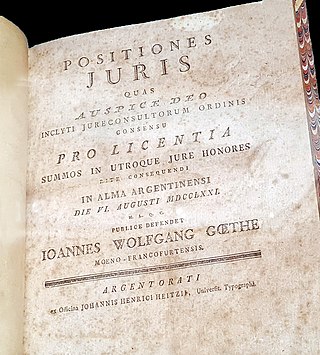
A licentiate is an academic degree present in many countries, representing different educational levels. It may be similar to a master's degree when issued by pontifical universities and other universities in Europe, Latin America, and Syria.
A Master of Philosophy is a postgraduate degree. An MPhil may be awarded to postgraduate students after completing taught coursework and one to two years of original research, which may also serve as a provisional enrolment for a PhD programme.
An undergraduate degree is a colloquial term for an academic degree earned by a person who has completed undergraduate courses. In the United States, it is usually offered at an institution of higher education, such as a college or university. The most common type of these undergraduate degrees are associate degree and bachelor's degree. Bachelor's degree typically takes at least three or four years to complete. In some other educational systems, undergraduate education is post-secondary education up to the level of a master's degree; this is the case for some science courses in Britain and some long-cycle medicine courses in Europe. These degrees can be categorised as basic or first professional degrees.
A Master of Letters degree is a postgraduate degree.

The Department of Civil and Environmental Engineering is the academic department at Imperial College London dedicated to civil engineering. It is located at the South Kensington Campus in London, along Imperial College Road. The department is currently a part of the college's Faculty of Engineering, which was formed in 2001 when Imperial College restructured. The department has consistently ranked within the top five on the QS World University Rankings in recent years.
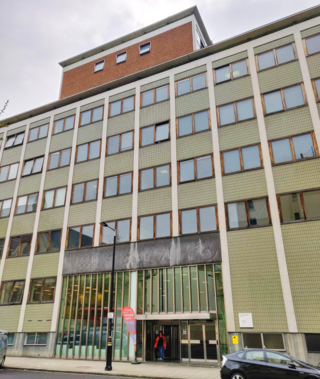
The Blackett Laboratory is part of the Imperial College Faculty of Natural Sciences and has housed the Department of Physics at Imperial College London since its completion in 1961. Named after experimental physicist Patrick Blackett who established a laboratory at the college, the building is located on the corner of Prince Consort Road and Queen's Gate, Kensington. The department ranks 11th on QS's 2018 world university rankings.
Alternative pathways in education are alternative means of obtaining educational qualifications, other than the traditional means of gaining access to or completing the required study to obtain the educational qualifications.

The Department of Chemical Engineering, Imperial College London is the centre of teaching and research in chemical and process engineering at Imperial College London, occupying the Aeronautics and Chemical Engineering Extension (ACEX), Bone and Roderic Hill buildings, on the South Kensington campus. Formally inaugurated in 1912, the department has over 40 faculty members, 100 postdoctoral researchers, 200 PhD researchers, 80 taught postgraduates, and 500 undergraduates. The department ranks 7th on QS's 2018 world rankings.
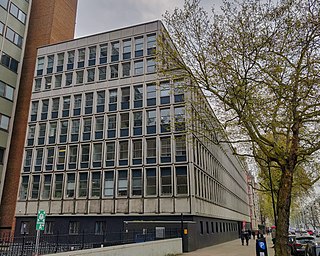
The Department of Computing (DoC) is the computer science department at Imperial College London. The department has around 50 academic staff and 1000 students, with around 600 studying undergraduate courses, 200 PhD students, and 200 MSc students. The department is predominantly based in the Huxley Building, 180 Queen's Gate, which it shares with the Maths department, however also has space in the William Penney Laboratory and in the Aeronautics and Chemical Engineering Extension. The department ranks 7th in the Times Higher Education 2020 subject world rankings.

The Department of Materials is responsible for the teaching and research in materials science and engineering at Imperial College London, occupying the Royal School of Mines and Bessemer buildings on the South Kensington campus. It can trace its origins back to the metallurgy department of the Government School of Mines and Science applied to the Arts, founded in 1851.
References
- ↑ "For current students - Administration and support services - Imperial College London". www.imperial.ac.uk. Retrieved 15 April 2019.
- ↑ "Degree Certificates". Imperial College London. Retrieved 7 January 2023.
- ↑ "A timeline of College developments | About | Imperial College London". www.imperial.ac.uk. Retrieved 7 January 2023.
- ↑ "Visiting students". Imperial College London. Retrieved 7 January 2023.
